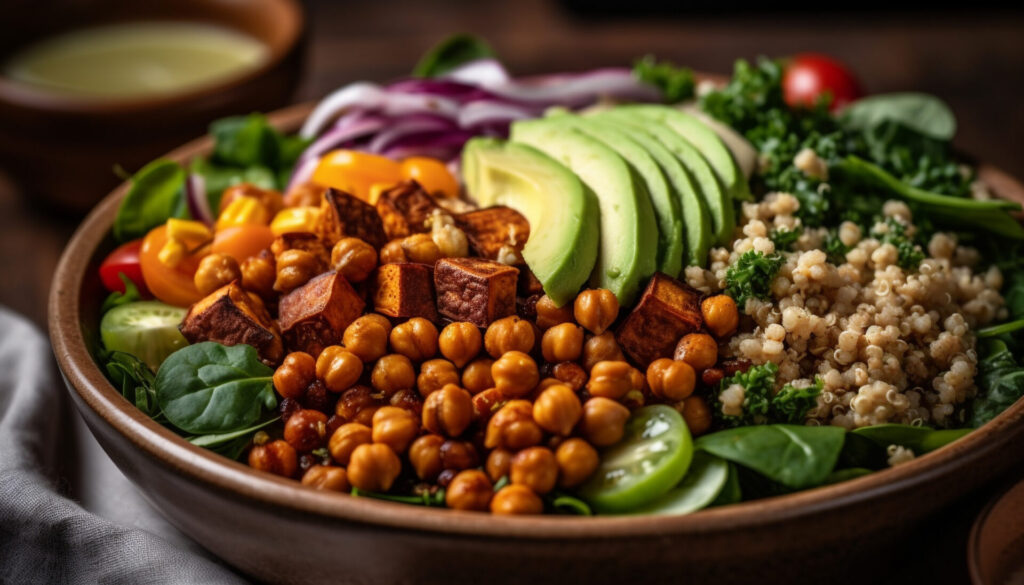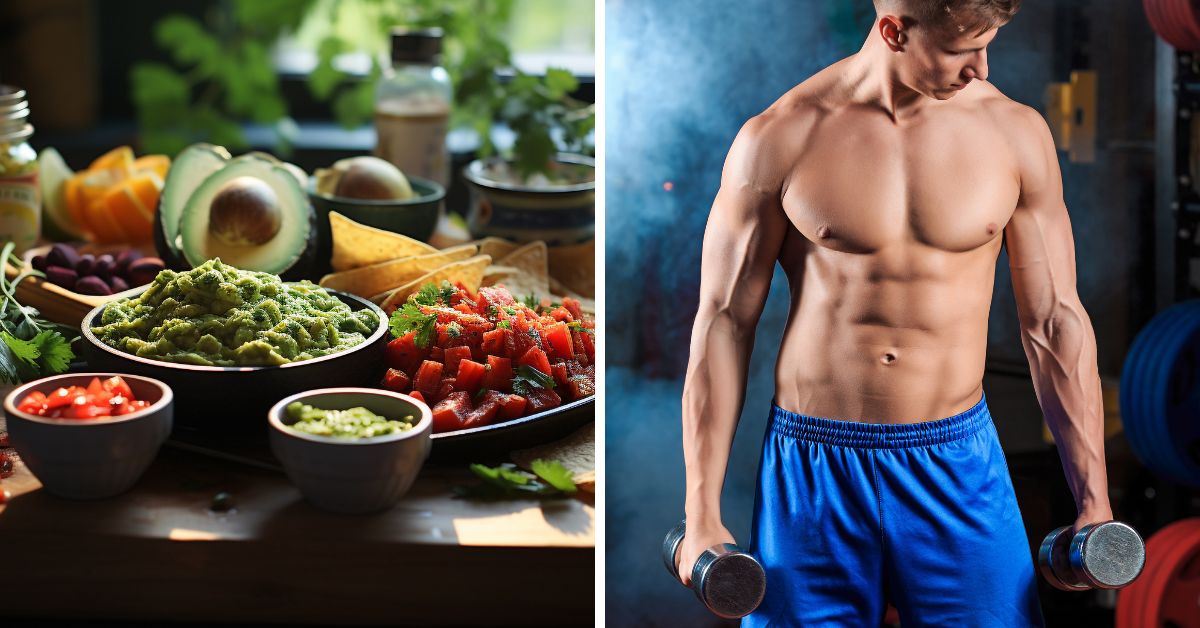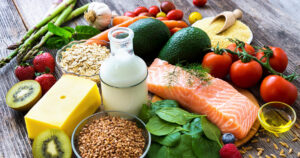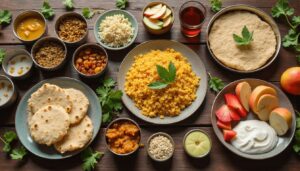In recent years, the plant-based diet has gained immense popularity. Once considered a niche choice, it is now embraced by athletes and fitness enthusiasts. The focus is no longer just on weight loss or ethical reasons; it's also about achieving peak physical performance, including muscle building.
Many believe that building muscle on a plant-based diet is challenging. However, with the right approach, it is not only possible but can also provide numerous health benefits. This guide will explore how a plant-based diet can be effective for muscle building, the key nutrients to focus on, and practical tips to get started.
Shifting to a plant-based diet for muscle building requires knowledge and planning. This article aims to provide you with all the necessary information, making your transition smooth and effective. By the end, you will be equipped with the knowledge to build muscle efficiently while enjoying the benefits of a plant-based diet.
What is a Plant-Based Diet?
A plant-based diet emphasizes foods derived from plants. This includes not only fruits and vegetables but also nuts, seeds, oils, whole grains, legumes, and beans. It doesn't mean that you have to become a vegetarian or vegan and never eat meat or dairy. Instead, you're proportionately choosing more of your foods from plant sources.

The primary focus is on consuming whole, unprocessed foods that are nutrient-dense. This diet is rich in essential vitamins, minerals, and antioxidants, contributing to overall health and well-being. It's important to note that a plant-based diet is not synonymous with a vegan diet. While veganism strictly avoids all animal products, a plant-based diet may include small amounts of animal products, though they are not the focus.
Benefits of a Plant-Based Diet for Muscle Building
Adopting a plant-based diet for muscle building can offer numerous advantages. First, plant-based foods are typically high in antioxidants and anti-inflammatory compounds, which aid in recovery and reduce muscle soreness. Additionally, these foods are often lower in calories and fat, helping to maintain a lean physique.
Another significant benefit is the abundance of dietary fibre found in plant-based foods. Fibre helps with digestion and the absorption of nutrients, ensuring that your body gets the maximum benefit from what you eat. Furthermore, plant-based diets are linked to improved heart health, reduced risk of chronic diseases, and better overall health markers.
Essential Nutrients for Muscle Building on a Plant-Based Diet
To build muscle effectively, your body needs specific nutrients. Here are the key nutrients to focus on when following a plant-based diet:
Protein
Protein is crucial for muscle repair and growth. Good plant-based protein sources include lentils, chickpeas, beans, quinoa, tofu, tempeh, and edamame. It's essential to consume a variety of these to ensure you're getting all the essential amino acids.
Iron
Iron is vital for transporting oxygen to your muscles. Plant-based sources of iron include spinach, lentils, chickpeas, quinoa, and fortified cereals. Consuming vitamin C-rich foods alongside iron-rich foods can enhance absorption.
Calcium
Calcium is necessary for muscle function and bone health. While dairy is a well-known source, plant-based sources include kale, broccoli, almonds, and fortified plant milks.
Omega-3 Fatty Acids
Omega-3 fatty acids help reduce inflammation and support muscle recovery. Chia seeds, flaxseeds, walnuts, and hemp seeds are excellent plant-based sources.
Vitamin B12
Vitamin B12 is essential for energy metabolism and muscle growth. As it is primarily found in animal products, those on a plant-based diet should consider fortified foods or supplements.
Planning Your Plant-Based Meals
Planning is crucial when adopting a plant-based diet for muscle building. Here are some tips to help you get started:
Meal Prep
Preparing meals in advance ensures that you have nutritious options readily available. This can help you avoid the temptation of reaching for less healthy choices.
Balanced Meals
Each meal should include a source of protein, healthy fats, and complex carbohydrates. This balance will provide sustained energy and support muscle growth.
Snacks
Healthy snacks can keep your energy levels up and provide additional nutrients. Consider options like nuts, seeds, fruit, and hummus with vegetables.
Sample Meal Plan
Here's a sample meal plan to give you an idea of how to structure your meals on a plant-based diet for muscle building:
Breakfast
- Smoothie: Blend spinach, banana, berries, flaxseeds, and a plant-based protein powder.
- Oatmeal: Cook oats with almond milk, and top with chia seeds, nuts, and fruit.
Lunch
- Quinoa Salad: Combine quinoa, chickpeas, cucumber, tomatoes, and a tahini dressing.
- Lentil Soup: Prepare a hearty soup with lentils, vegetables, and spices.
Dinner
- Stir-Fry: Sauté tofu with mixed vegetables, and serve over brown rice.
- Chickpea Curry: Cook chickpeas in a rich tomato sauce with spices, and serve with whole grain naan.
Snacks
- Trail Mix: Mix nuts, seeds, and dried fruit.
- Hummus and Veggies: Pair hummus with carrot sticks, cucumber slices, and bell peppers.
Supplementing Your Diet
While whole foods should be your primary source of nutrients, supplements can help fill any gaps. Consider the following:
- Protein Powder: A high-quality plant-based protein powder can ensure you meet your protein needs.
- Vitamin B12: As mentioned earlier, this is crucial for those on a plant-based diet.
- Omega-3 Supplements: Algal oil supplements are a good plant-based source of omega-3s.
Overcoming Common Challenges
Transitioning to a plant-based diet for muscle building can come with challenges. Here are some tips to help you overcome them:
Protein Intake
Many worry about getting enough protein. Ensure you're consuming a variety of protein-rich plant foods and consider using protein supplements if necessary.
Meal Planning
It can be daunting to plan plant-based meals. Start by finding a few simple recipes you enjoy and gradually expand your repertoire.
Social Situations
Eating out or attending social events can be challenging. Look for plant-based options on menus and don't hesitate to bring your own dishes to gatherings.
Success Stories
Many athletes and bodybuilders have successfully built muscle on a plant-based diet. For example, professional bodybuilder Torre Washington has been thriving on a plant-based diet for years. His success showcases that with the right approach, plant-based eating can support muscle growth and athletic performance.
Final Thoughts
Building muscle on a plant-based diet is entirely feasible with proper planning and knowledge. By focusing on nutrient-dense foods, ensuring adequate protein intake, and supplementing where necessary, you can achieve your muscle-building goals while enjoying the numerous health benefits of a plant-based diet. This lifestyle not only supports muscle growth but also promotes overall well-being, making it a worthwhile choice for many.







